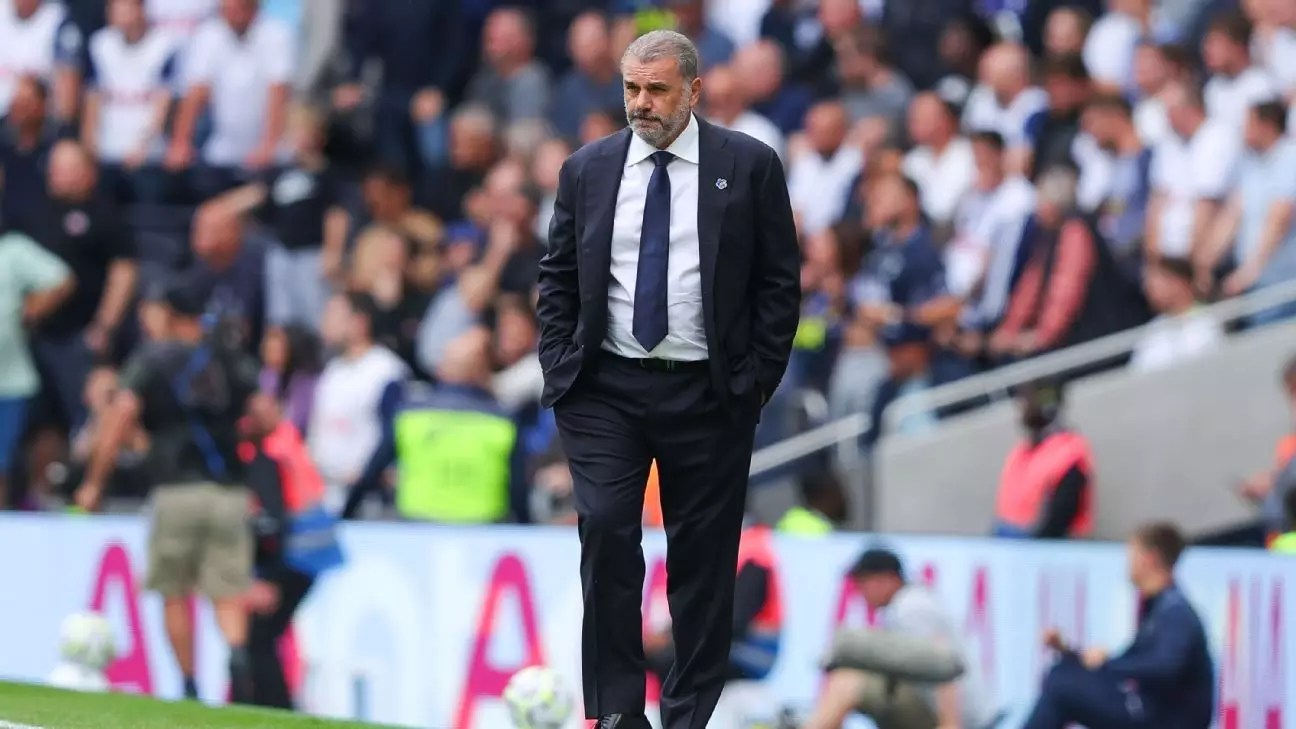In the world of football, where every word spoken by a manager can ignite debate and speculation, Tottenham Hotspur’s head coach Ange Postecoglou has inadvertently stepped into a storm following his post-match comments after the team’s recent defeat to Arsenal. His assertion, “I always win things in my second year,” has led to scrutiny and backlash, particularly given Tottenham’s long-standing trophy drought dating back to 2008. The irony of such a declaration coming from a manager leading a club still searching for silverware is not lost on fans and pundits alike, and this conflict highlights the complex relationship between ambition and reality in sports.
Postecoglou’s statement purported to be an empirical observation based on his previous coaching successes at Celtic, Yokohama F. Marinos, and Brisbane Roar—clubs where he indeed captured titles in his second season. By referencing his history of success, the Spurs manager aimed to instill hope and belief in a club that has become synonymous with near-misses and disappointments. However, the backlash illustrates a deeper societal perspective on the burdens that managerial declarations can carry, especially at a high-profile club like Tottenham.
The manager’s comments underscore the difficult terrain he must navigate: on one hand, he wishes to cultivate optimism, while on the other, he risks alienating supporters who are weary of empty promises. In sports, success is often measured by tangible outcomes, and given Tottenham’s lack of recent achievements, it’s understandable why his confidence might be received with skepticism.
Analysis from football pundits has offered varying perspectives on Postecoglou’s remarks. Paul Merson’s tongue-in-cheek assertion that he would have “more chance” of winning a dance competition than Spurs had of ending their trophy drought this season encapsulates the sentiment amongst critics. Such analyses do not merely reflect on Postecoglou’s verbal misstep but also highlight the inherent pressure associated with leading a football club that has been starved of success. The harsh truth remains that actions ultimately speak louder than words, especially in the fickle arena of football.
Managing Expectations
Postecoglou’s reflections on the situation reveal his struggle with public perception. He expressed bewilderment over why his factual statement inspired such a backlash, pointing to a societal trend where honesty about achievements can be misconstrued as arrogance. This incident illustrates the broader theme of managing expectations within football—coaches must articulate ambition without coming off as braggarts or delusional.
As the season unfolds, it will be imperative for Postecoglou to foster a nurturing environment while balancing the aspirations of a club desperate to reclaim its stature in English football. The looming question remains: can he transform talk into tangible success, thereby silencing naysayers and critics alike?
The Road Ahead
Looking forward, Postecoglou’s job will not only be about winning trophies but also about resetting the narrative surrounding Tottenham. With upcoming fixtures like the Carabao Cup tie against Coventry, there lies an opportunity for players to step up and prove that change is indeed possible under his stewardship. The narrative is set, the pressure mounts, and only through cohesive performance and determination will the Spurs find a way to rewrite their recent history. As for Postecoglou, a composed and clear strategy born from his past experiences may yet lay the foundation for a successful tenure in North London.


Leave a Reply